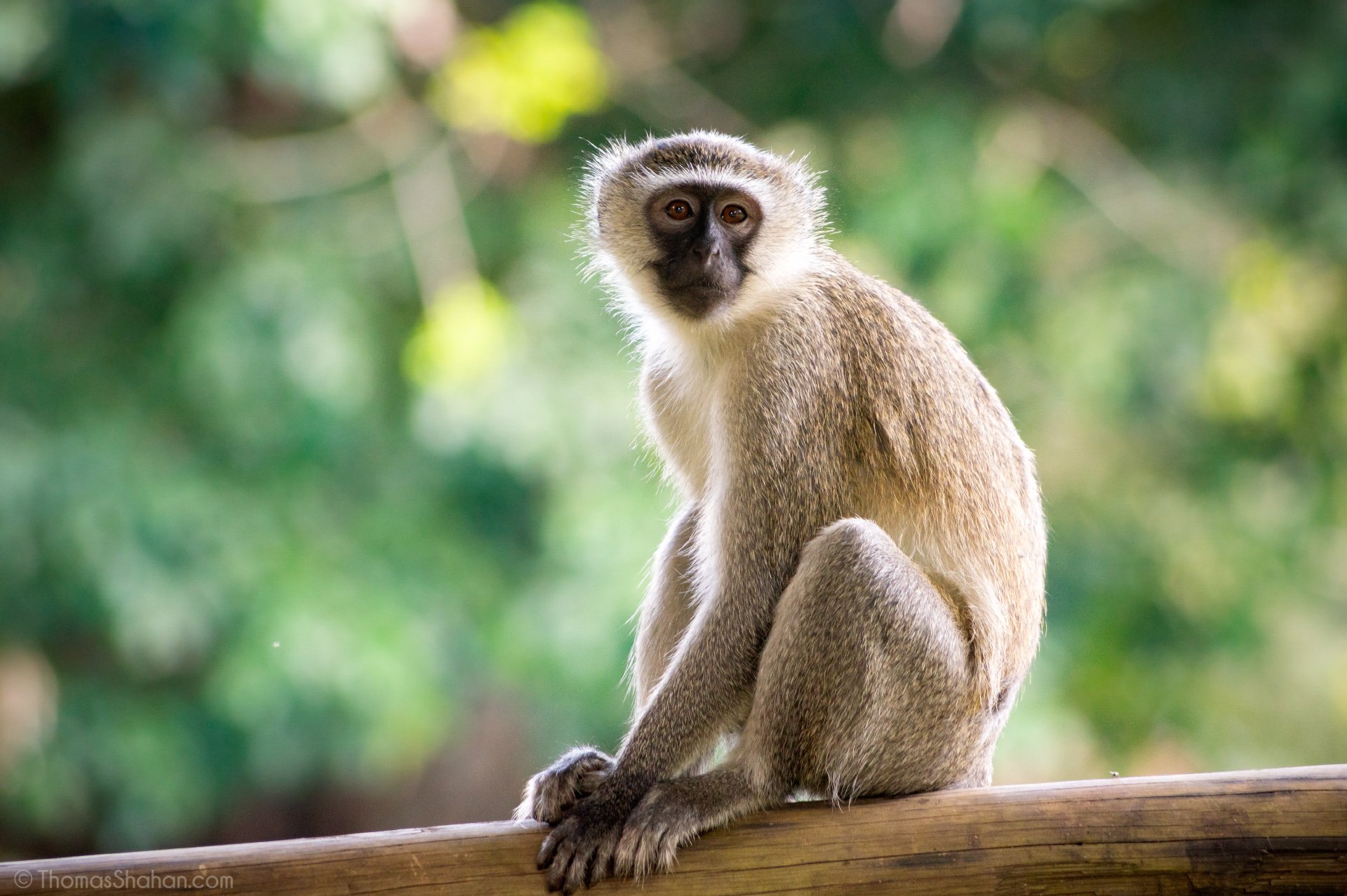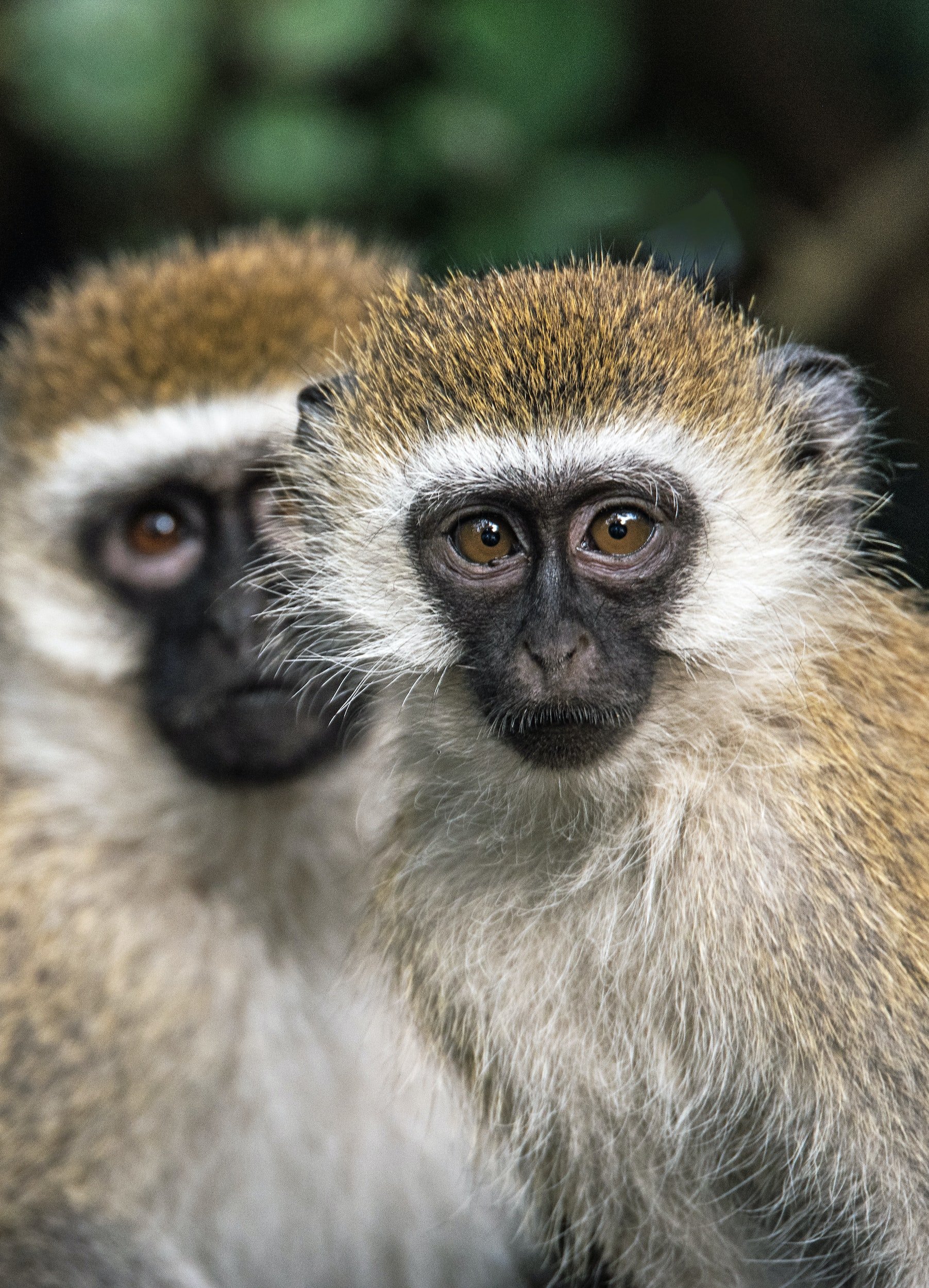Entire Population of Vervet Monkeys to be Eradicated from this Country
Primate experts are calling for the government-funded cull to be replaced with a humane sterilization program.
Credit: Wikimedia Commons/Thomas Shahan
The Caribbean island of Sint Maarten has approved a controversial plan to kill its entire population of green vervet monkeys as a means of population control.
The government-funded project will see the Nature Foundation St Maarten NGO capture and euthanize at least 450 monkeys over the next three years on the Dutch island territory. The move comes as farmers complain of crop damages, while residents say the species has ‘become a nuisance’.
“When a species establishes a population in an area that it isn’t native to there are often no predators to keep the population size under control,” said the foundation’s manager, Leslie Hickerson. “Species management is an important aspect of keeping the island healthy for those who come after us.”
However, critics of the plan say that a sterilization program to humanely reduce the non-native monkey population over time should be implemented over a lethal cull.
“I think a better approach and more publicly acceptable would be to vasectomise the males and sterilise the females,” said Dave Du Toit, founder of the Vervet Monkey Foundation in South Africa, who does not think the cull will work. He suggests addressing food disposal sources that attract the monkeys and analyzing natural areas that may allow the monkeys to exist with less human interaction.
Native to East and South Africa, vervet monkeys are small, highly sociable, semi-terrestrial primates. European settlers who kept the species as pets likely brought the non-native species into Caribbean islands, including Sint Maarten, sometime around the 17th Century.
Despite being categorized as ‘Least Concern’ by the International Union for Conservation of Nature, vervet populations are declining globally due to a number of threats, mainly associated with human-wildlife conflict. As well as being shot, poisoned, or trapped by farmers, the adult monkeys can also be killed for bushmeat while the infants are sold into the illegal exotic pet trade.
A coalition of 75 primate protection and animal welfare experts have offered support to the Government of St. Maarten in a bid to prevent the killing.
In a letter sent to the Minister for the Environment, the groups outline concerns over current plans and make an offer of collaboration with the Caribbean Dutch territory and neighboring French Saint Martin to implement a humane sterilization program.
“Our coalition is standing ready to offer expertise, including voluntary veterinary services, to the Government of St. Maarten to save the innocent lives of the 450 monkeys who currently make their home there,” said Angela Grimes, CEO of Born Free USA who are leading the coalition’s efforts.
“A sterilization program will effectively and humanely reduce the non-native monkey population over time, and we have offered to work with St. Maarten authorities to help mitigate short-term issues caused by the monkeys, such as crop damage and encroachment into homes and schools.”
Please sign and share Born Free’s petition to the government of St. Maarten, calling for the development of a humane sterilization program that will save the monkeys' lives and prevent further population growth.
Exclusive Interview:
Species Unite sat down with Liz Tyson, the Programs Director of Born Free USA, to discuss the slaughter of Sint Maarten’s vervet monkeys and what can be done to stop it.
We Have A Favor To Ask…
Species Unite amplifies well-researched solutions to some of the most abusive animal industries operating today.
At this crucial moment, with worldwide momentum for change building, it’s vital we share these animal-free solutions with the world - and we need your help.
We’re a nonprofit, and so to keep sharing these solutions, we’re relying on you - with your support, we can continue our essential work in growing a powerful community of animal advocates this year.
More stories:
Species Unite
A collection of stories of those who fight the good fight on behalf of animals.





Meat giant JBS USA misled consumers with fake sustainability claims to boost sales, the lawsuit alleges.